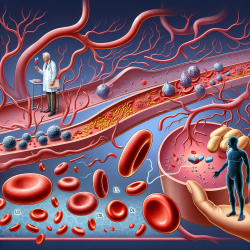Understanding Autoimmune Psychosis: A New Paradigm in Clinical Practice
The intersection of psychosis and immune dysregulation has become an increasingly important area of study. The research article, "A clinical approach to new-onset psychosis associated with immune dysregulation: the concept of autoimmune psychosis," provides compelling evidence that autoimmune processes can mimic drug-resistant primary psychosis. This insight is crucial for clinicians aiming to improve diagnostic accuracy and treatment outcomes.
Key Findings from the Research
The study highlights the role of antibodies against synaptic and neuronal cell membrane proteins, such as the anti-N-methyl-d-aspartate receptor (NMDAR), in linking autoimmunity to psychosis. The concept of "autoimmune psychosis" underscores the need for a comprehensive neurological workup in cases of atypical neuropsychiatric presentations.
Key diagnostic tools include:
- Neuroimaging and EEG testing
- Cerebrospinal fluid (CSF) analysis
These modalities help identify anatomical and immunological footprints in the brain, which are often absent in conventional MRI scans.
Implications for Clinical Practice
For practitioners, integrating these findings into clinical practice involves a multi-modal diagnostic approach. This includes:
- Detailed medical and neurological history taking
- Thorough general and neurological examinations
- Recognizing atypical psychotic presentations
- Identifying clinical accompaniments suggestive of immune dysregulation
Such a comprehensive approach ensures early diagnosis and timely treatment, particularly in cases of seronegative but probable autoimmune psychosis (SPAP).
Encouraging Further Research
While the current research provides a robust framework, further studies are essential to refine diagnostic criteria and treatment protocols. Clinicians are encouraged to engage in research efforts that explore the prevalence of autoimmune psychosis and the efficacy of immune modulatory therapies.
Conclusion
By adopting the insights from this research, practitioners can significantly enhance their diagnostic acumen and therapeutic strategies, ultimately leading to better outcomes for patients with atypical psychotic disorders. The distinction between autoimmune-related and primary psychosis is therapeutically significant, as the former can often respond well to immune modulatory treatments.
To read the original research paper, please follow this link: A clinical approach to new-onset psychosis associated with immune dysregulation: the concept of autoimmune psychosis.










